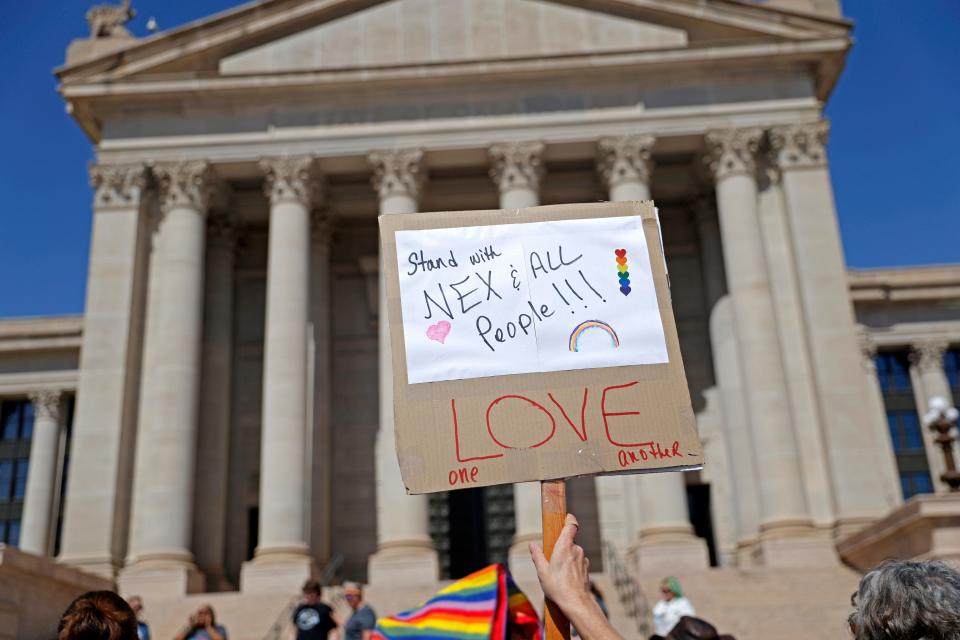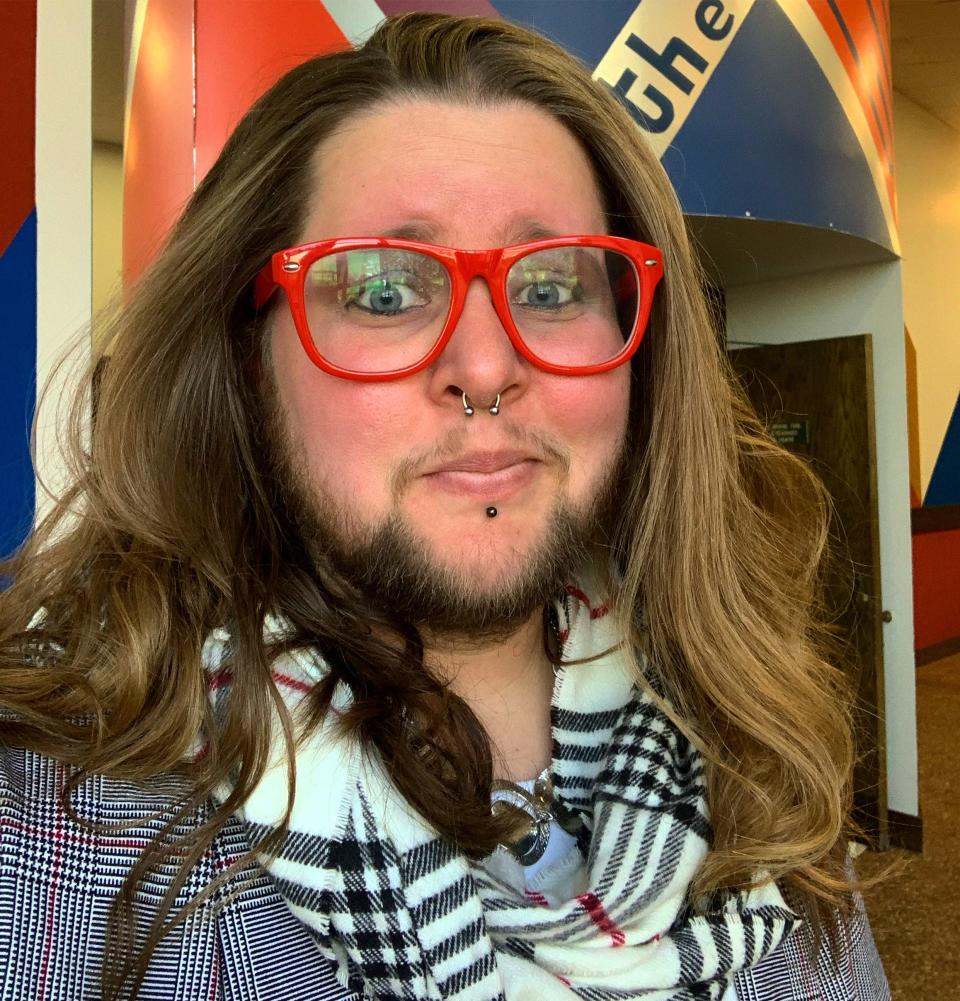Oklahoma leaders want to address bullying. But they fail to change the culture that fosters it
- Oops!Something went wrong.Please try again later.
The tragic death last month of Nex Benedict, a 2STGNC+ (Two Spirit, transgender and gender nonconforming +) 16-year-old of Choctaw ancestry, a day after a physical fight in a restroom at Owasso High School, has compelled many Indigenous and queer Oklahomans like myself to grapple with the consequences of erasure of our identities.
From the very founding of our state, all the way to Gov. Kevin Stitt’s State of the State last month, the message is clear that in order to belong in Oklahoma, we as members of marginalized communities must live a fractional life. I have called Oklahoma home my whole life, and as a Two Spirit member of the Cherokee Nation, I work with both tribal groups and 2SLGBTQ+ organizations across the state to help young people find a place to celebrate all of who they are. And it’s clear we have a long way to go.
Last month, Gov. Stitt openly admitted that bullying in public schools is a valid reason for parents to decide to send their children to charter schools. Yet Stitt, the state schools Superintendent Ryan Walters and the state’s legislative leadership have failed to offer solutions to fix the culture that allows bullying in the first place. In bodycam footage, Nex and their guardian, Sue Benedict, stated in their own words the day before Nex’s death that Nex had faced bullying for a year prior to the assault that took place in the restroom.

Data from GLSEN, a national organization that advocates for LGBTQ+ youths at school, indicates in the 2021-22 academic year, 83% of LGBTQ+ youths experienced in-person harassment or assault based on being LGBTQ+, their race/ethnicity, or other personal characteristics. Educators and educational institutions need to do more to prevent the hostile environment that causes these negative experiences, which in turn affect young people’s ability to focus on their education and their future.
The risk of bullying and harassment is exacerbated for young Oklahomans with intersecting identities ― such as Nex ― when they are both LGBTQ+ and Indigenous. Oklahoma’s leadership similarly perpetuates anti-Indigenous sentiment and fails to enact policies protecting our many tribes’ ability to observe our longstanding traditions, celebrations and ceremonies. Just last year, the Oklahoma Legislature overrode Gov. Stitt’s veto of a law that allows students to wear Native regalia during graduation ceremonies and school functions. While the law is indeed an important victory, it’s also a clear reminder that our traditions are overly regulated rather than openly celebrated.
Editorial: Ryan Walters' response to Nex Benedict's death only causes more pain for Oklahoma's LGTBQ+ families
A similar example of the lack of cultural competency happened in 2022, when multiple Oklahoma school districts made headlines for cutting a young Indigenous student’s hair without permission. Our freedom to dress, wear hairstyles and otherwise express ourselves in a way that honors our Native culture holds significant history and meaning to many of our tribes, yet Oklahoma leaders seem intent on sowing division rather than building community.
In recent years, explicit anti-2SLGBTQ+ bills continue to be introduced and passed by legislators that also have anti-Indigenous implications. 2021’s House Bill 1775, which bans educators and students from discussing concepts of race and gender in school, forces 2STGNC+ students to hide the foundations of who we are and compels us to feel ashamed of our background. Indigenous people are missing and murdered at exponentially higher rates than the general population. In order to build awareness and correct misconceptions about who we are, we need the opportunity to name our culture and history while at school. The erasure of our communities by the state of Oklahoma has an undeniable impact on the hatred and violence we face.
Oklahoma is home to nearly 40 tribal nations. While its members are not a monolith, we all share in common the urgent need for advocacy by our state’s leaders and institutions in order to combat the high levels of discrimination that we face. We continue to exist, despite the state’s attempts to erase us.
In Nex’s memory, I urge Oklahoma’s leaders to shift course and take actions that align with a future that all of our youth can believe in, no matter what we look like and how we identify. We need to send a message that Oklahoma can and should be a place where we all have the safety to thrive.

Taylor Raye (they/them) is a Two Spirit community member who lives on the Cherokee Nation reservation.
This article originally appeared on Oklahoman: How Oklahoma can address bullying after Nex Benedict's death

